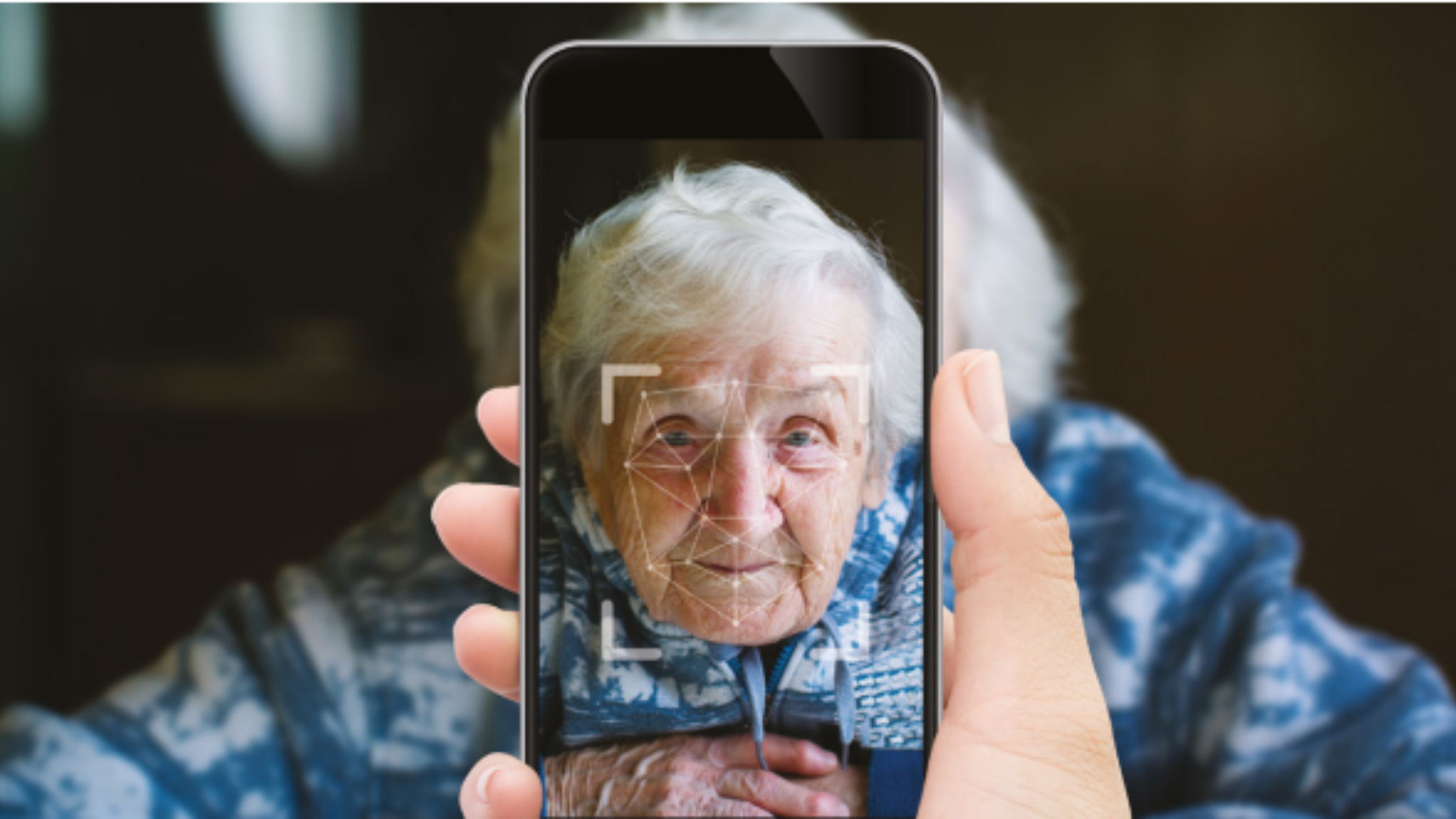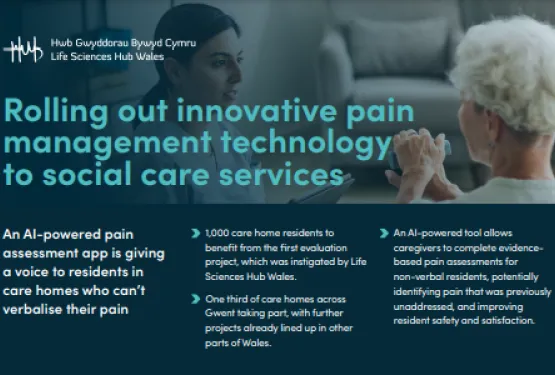How Life Sciences Hub Wales has supported the project
This project was instigated and led by Life Sciences Hub Wales from the start, through our work actively scanning for new, innovative solutions to support health and care provision in Wales. After researching and engaging with the providers of PainChek, our Project Lead approached local authorities and funding providers to gauge interest in a potential evaluation project. Following the funding agreement with Gwent Regional Partnership Board, we have led the evaluation, engaging with both care homes and PainChek to oversee the launch and roll-out of licensing and training programmes.
We will be working with the Assistive Technologies Innovation Centre (ATiC) at the University of Wales, who will conduct an independent evaluation of the technology, and the impact it has in a Welsh setting.
What next?
Given the early positive reactions from care homes to this first evaluation, and the evidence PainChek is amassing from other worldwide implementations, the project team is positive about the potential benefits this tool could bring to Wales. Pending outcomes of the evaluation, and if the evidence is strong enough, Life Sciences Hub Wales is already in discussions with Welsh Government about a nationwide implementation of the tool.
Another funded evaluation has also been agreed in North Wales, with a focus on learning disability services. This will gather evidence on the use of PainChek for people with a learning disability living in supported living services.
Read the full project timeline
We’re here to help drive system-wide transformation! If you want to access support similar to that outlined in this case study, then we want to hear from you. Submit your enquiry today via our website.


